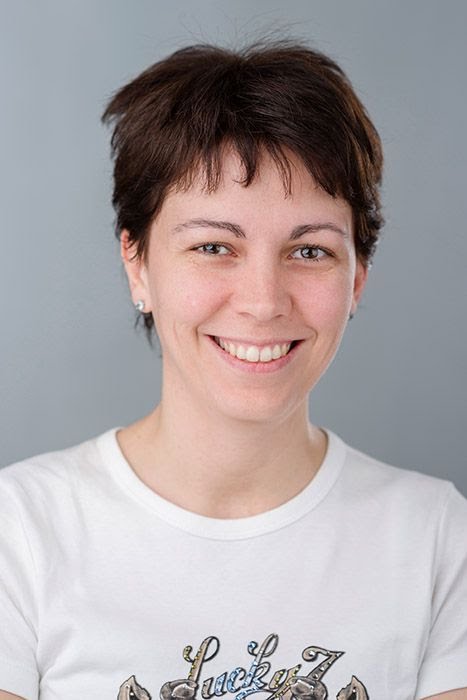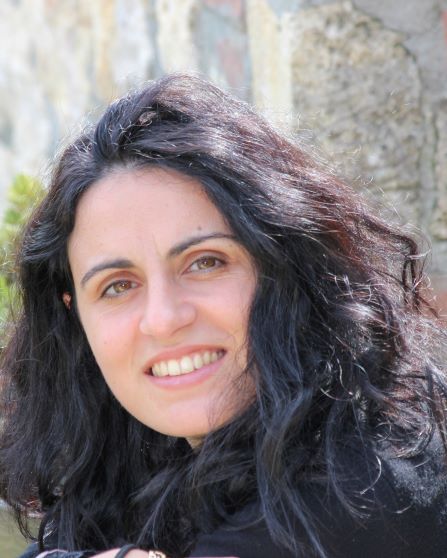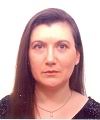Studying at the University of Verona
Here you can find information on the organisational aspects of the Programme, lecture timetables, learning activities and useful contact details for your time at the University, from enrolment to graduation.
Academic calendar
The academic calendar shows the deadlines and scheduled events that are relevant to students, teaching and technical-administrative staff of the University. Public holidays and University closures are also indicated. The academic year normally begins on 1 October each year and ends on 30 September of the following year.
Course calendar
The Academic Calendar sets out the degree programme lecture and exam timetables, as well as the relevant university closure dates..
| Period | From | To |
|---|---|---|
| First semester bachelor degree | Sep 16, 2019 | Jan 10, 2020 |
| Second semester bachelor degree | Feb 17, 2020 | Jun 5, 2020 |
| Session | From | To |
|---|---|---|
| First semester intermediate tests | Nov 4, 2019 | Nov 8, 2019 |
| Winter exam session | Jan 13, 2020 | Feb 14, 2020 |
| Second semester intermediate tests | Apr 15, 2020 | Apr 17, 2020 |
| Summer session exam | Jun 8, 2020 | Jul 10, 2020 |
| Autumn Session exams | Aug 24, 2020 | Sep 11, 2020 |
| Session | From | To |
|---|---|---|
| Autumn Session | Dec 2, 2019 | Dec 4, 2019 |
| Winter Session | Apr 7, 2020 | Apr 9, 2020 |
| Summer session | Sep 7, 2020 | Sep 9, 2020 |
Exam calendar
Exam dates and rounds are managed by the relevant Economics Teaching and Student Services Unit.
To view all the exam sessions available, please use the Exam dashboard on ESSE3.
If you forgot your login details or have problems logging in, please contact the relevant IT HelpDesk, or check the login details recovery web page.
Academic staff
Borello Giuliana
 giuliana.borello@univr.it
giuliana.borello@univr.it
 045 802 8493
045 802 8493
 stefano.gatti@univr.it
stefano.gatti@univr.it

Manzoni Elena
 elena.manzoni@univr.it
elena.manzoni@univr.it
 8783
8783
 neliana.orlandi@univr.it
neliana.orlandi@univr.it
Study Plan
The Study Plan includes all modules, teaching and learning activities that each student will need to undertake during their time at the University.
Please select your Study Plan based on your enrollment year.
1° Year
| Modules | Credits | TAF | SSD |
|---|
2° Year activated in the A.Y. 2020/2021
| Modules | Credits | TAF | SSD |
|---|
3° Year activated in the A.Y. 2021/2022
| Modules | Credits | TAF | SSD |
|---|
| Modules | Credits | TAF | SSD |
|---|
| Modules | Credits | TAF | SSD |
|---|
| Modules | Credits | TAF | SSD |
|---|
| Modules | Credits | TAF | SSD |
|---|
Legend | Type of training activity (TTA)
TAF (Type of Educational Activity) All courses and activities are classified into different types of educational activities, indicated by a letter.
Statistics (2020/2021)
Teaching code
4S00121
Teacher
Coordinator
Credits
9
Language
Italian
Scientific Disciplinary Sector (SSD)
SECS-S/01 - STATISTICS
Period
primo semestre (lauree) dal Sep 28, 2020 al Dec 23, 2020.
Learning outcomes
The course aims at providing the basic techniques of descriptive statistics, probability and statistical inference to undergraduate students in economic and business sciences. Prerequisite to the course is the mastering of a few basic mathematical concepts such as limit, derivative and integration at the level of an undergraduate introductory course in calculus. Overall, these techniques provide the necessary toolkit for quantitative analysis in processes related to the observation and understanding of collective phenomena. From a practical point of view, they are necessary for descriptive, interpretative and decision-making purposes when carrying out statistical studies related to economic and social phenomena. In addition to providing the necessary mathematical apparatus, the course aims at providing conceptual tools for a critical evaluation of the methodologies considered.
Program
a) DESCRIPTIVE STATISTICS
• Data collection and classification; data types.
• Frequency distributions; histograms and charts.
• Measures of central tendency; arithmetic mean, geometric mean and harmonic mean; median; quartiles and percentiles.
• Variability and measures of dispersion; variance and standard deviation; coefficient of variation.
• Moments; indices of skewness and kurtosis.
• Multivariate distributions; scatterplots; covariance; variance of the sum of more variables.
• Multivariate frequency distributions; conditional distributions; chi-squared index of dependence; Simpson’s paradox.
• Method of least squares; least-squares regression line; Pearson’s coefficient of linear correlation; Cauchy-Schwarz inequality; R^2 coefficient; total, explained and residual deviance.
b) PROBABILITY
• Random experiments; sample space; random events and operations; combinatorics.
• Conditional probability; independence; Bayes' theorem.
• Discrete and continuous random variables; distribution function; expectation and variance; Markov and Tchebycheff's inequalities. Special discrete distributions: uniform, Bernoulli, Binomial, Poisson and geometric.
Special continuous distributions: continuous uniform, Gaussian, exponential.
• Multivariate discrete random variables; joint probability distribution; marginal and conditional probability distributions; independence; covariance; correlation coefficient.
• Linear combinations of random variables; average of independent random variables; sum of independent, Gaussian random variables.
• Weak law of large numbers; Bernoulli’s law of large numbers for relative frequencies; central limit theorem.
c) INFERENTIAL STATISTICS
• Sample statistics and sampling distributions; Chi-square distribution; Student's t distribution; Snedecor's F distribution.
• Point estimates and estimators; unbiasedness, efficiency, consistency; estimate of a mean, of a proportion, of a variance.
• Confidence intervals for a mean, for a proportion (large samples) and for a variance.
• Hypothesis testing; one and two tails tests for a mean, for a proportion (large samples) and for a variance; hypothesis testing for differences between two means, two proportions (large samples) and two variances.
Textbooks
- A. AZZALINI (2001) Inferenza statistica: una presentazione basata sul concetto di verosimiglianza, 2nd Ed.,
Springer Verlag Italia.
- E. BATTISTINI (2004) Probabilità e statistica: un approccio interattivo con Excel. McGraw-Hill, Milano.
- S. BERNSTEIN, R. BERNSTEIN (2003) Statistica descrittiva, Collana Schaum's, numero 109. McGraw-Hill, Milano.
- S. BERNSTEIN, R. BERNSTEIN (2003) Calcolo delle probabilita', Collana Schaum's, numero 110. McGraw-Hill, Milano.
- S. BERNSTEIN, R. BERNSTEIN (2003) Statistica inferenziale, Collana Schaum's, numero 111. McGraw-Hill, Milano.
- F. P. BORAZZO, P. PERCHINUNNO (2007) Analisi statistiche con Excel. Pearson, Education.
- D. GIULIANI, M. M. DICKSON (2015) Analisi statistica con Excel. Maggioli Editore.
- P. KLIBANOFF, A. SANDRONI, B. MODELLE, B. SARANITI (2010) Statistica per manager, 1st Ed., Egea.
- D. M. LEVINE, D. F. STEPHAN, K. A. SZABAT (2014) Statistics for Managers Using Microsoft Excel, 7th Ed.,
Global Edition. Pearson.
- M. R. MIDDLETON (2004) Analisi statistica con Excel. Apogeo.
- D. PICCOLO (1998) Statistica, 2nd Ed. 2000. Il Mulino, Bologna.
- D. PICCOLO (2010) Statistica per le decisioni, New Ed. Il Mulino, Bologna.
Teaching methods
Course load is equal to 84 hours: the course consists of 48 lecture hours (equal to 6 ECTS credits) and of 36 exercise hours (equal to 3 ECTS credits).
Study Guide
A detailed syllabus will be made available at the end of the course on the e-learning platform.
Prerequisites
Students are supposed to have acquired math knowledge of basic concepts like limit, derivative and integral.
Exercise sessions
Exercise sessions are integral part of the course and are necessary to adequate understanding of the topics.
Tutoring activities
There will be optional tutoring hours devoted to exercises before each exam session. More detailed information will be made available in due course.
| Author | Title | Publishing house | Year | ISBN | Notes |
|---|---|---|---|---|---|
| W. Feller | An Introduction to Probability Theory and Its Applications, Volume 1 (Edizione 3) | Wiley | 1968 | ||
| P. Baldi | Calcolo delle Probabilità (Edizione 2) | McGraw-Hill | 2011 | 9788838666957 | |
| S. Lipschutz | Calcolo delle Probabilità, Collana Schaum | ETAS Libri | 1975 | ||
| P. Baldi | Calcolo delle Probabilità e Statistica (Edizione 2) | Mc Graw-Hill | 1998 | 8838607370 | |
| T. Mikosch | Elementary Stochastic Calculus With Finance in View | World Scientific, Singapore | 1999 | ||
| R. V. Hogg, A. T. Craig | Introduction to Mathematical Statistics (Edizione 5) | Macmillan | 1994 | ||
| D. M. Cifarelli | Introduzione al Calcolo delle Probabilità | McGraw-Hill, Milano | 1998 | ||
| A. M. Mood, F. A. Graybill, D. C. Boes | Introduzione alla Statistica | McGraw-Hill, Milano | 1991 | ||
| G. R. Grimmett, D. R. Stirzaker | One Thousand Exercises in Probability | Oxford University Press | 2001 | 0198572212 | |
| A. N. Shiryaev | Probability (Edizione 2) | Springer, New York | 1996 | ||
| G. R. Grimmett, D. R. Stirzaker | Probability and Random Processes (Edizione 3) | Oxford University Press | 2001 | 0198572220 | |
| G. R. Grimmett, D. R. Stirzaker | Probability and Random Processes: Solved Problems (Edizione 2) | The Clarendon Press, Oxford University Press, New York | 1991 | ||
| J. Jacod, P. Protter | Probability Essentials | Springer, New York | 2000 | ||
| G. Casella, R. L. Berger | Statistical Inference (Edizione 2) | Duxbury Thompson Learning | 2002 | ||
| G. Cicchitelli, P. D'Urso, M. Minozzo | Statistica: principi e metodi (Edizione 3) | Pearson Italia, Milano | 2018 | 9788891902788 | |
| S. E. Shreve | Stochastic Calculus for Finance II: Continuous-Time Models | Springer, New York | 2004 | ||
| S. E. Shreve | Stochastic Calculus for Finance I: The Binomial Asset Pricing Model | Springer, New York | 2004 | ||
| B. V. Gnedenko | Teoria della Probabilità | Editori Riuniti Roma | 1979 |
Examination Methods
For the a.y. 2020/21 the exam will be held on distance. It will consist of a written test (lasting 2 hours) using the QUIZ tool of Moodle and will be composed of 15/16 multiple-choice questions concerning both theoretical aspects of the program and exercises with numerical calculations of application of the methodologies learned during the course. No penalties will be applied for incorrect answers.
A score greater than or equal to 15/30 in the written test is required to be admitted to the oral test. Students who earn a grade of less than 15/30 do not pass the exam. If the grade obtained in the written test is greater than or equal to 18/30, the exam is passed and students may decide to take an optional oral test. The oral test will be held electronically through Zoom on a date and time that will be communicated after the written test and will cover the entire program of the course.
In order to take the exam, students will have to show their university card or an identification document.
Examination procedures are the same for all students.
Further details are available on the e-learning platform of the course. Any changes resulting from security provisions related to the ongoing pandemic emergency will be promptly communicated.
Type D and Type F activities
Nei piani didattici di ciascun Corso di studio è previsto l’obbligo di conseguire un certo numero di crediti formativi mediante attività a scelta (chiamate anche "di tipologia D e F").
Oltre che in insegnamenti previsti nei piani didattici di altri corsi di studio e in certificazioni linguistiche o informatiche secondo quanto specificato nei regolamenti di ciascun corso, tali attività possono consistere anche in iniziative extracurriculari di contenuto vario, quali ad esempio la partecipazione a un seminario o a un ciclo di seminari, la frequenza di laboratori didattici, lo svolgimento di project work, stage aggiuntivo, eccetera.
Come per ogni altra attività a scelta, è necessario che anche queste non costituiscano un duplicato di conoscenze e competenze già acquisite dallo studente.
Quelle elencate in questa pagina sono le iniziative extracurriculari che sono state approvate dal Consiglio della Scuola di Economia e Management e quindi consentono a chi vi partecipa l'acquisizione dei CFU specificati, alle condizioni riportate nelle pagine di dettaglio di ciascuna iniziativa.
Si ricorda in proposito che:
- tutte queste iniziative richiedono, per l'acquisizione dei relativi CFU, il superamento di una prova di verifica delle competenze acquisite, secondo le indicazioni contenute nella sezione "Modalità d'esame" della singola attività;
- lo studente è tenuto a inserire nel proprio piano degli studi l'attività prescelta e a iscriversi all'appello appositamente creato per la verbalizzazione, la cui data viene stabilita dal docente di riferimento e pubblicata nella sezione "Modalità d'esame" della singola attività.
ATTENZIONE: Per essere ammessi a sostenere una qualsiasi attività didattica, inlcuse quelle a scelta, è necessario essere iscritti all'anno di corso in cui essa viene offerta. Si raccomanda, pertanto, ai laureandi delle sessioni di dicembre e aprile di NON svolgere attività extracurriculari del nuovo anno accademico, cui loro non risultano iscritti, essendo tali sessioni di laurea con validità riferita all'anno accademico precedente. Quindi, per attività svolte in un anno accademico cui non si è iscritti, non si potrà dar luogo a riconoscimento di CFU.
| years | Modules | TAF | Teacher |
|---|---|---|---|
| 1° 2° 3° | Enactus Verona 2020 | D |
Paola Signori
(Coordinator)
|
| 1° 2° 3° | Parlare in pubblico e economic writing | D |
Martina Menon
(Coordinator)
|
| 1° 2° 3° | Samsung Innovation Camp | D |
Marco Minozzo
(Coordinator)
|
| 1° 2° 3° | Simulation and Implementation of Economic Policies | D |
Federico Perali
(Coordinator)
|
| years | Modules | TAF | Teacher |
|---|---|---|---|
| 1° 2° 3° | Simulation and Implementation of Economic Policies | D |
Federico Perali
(Coordinator)
|
| years | Modules | TAF | Teacher |
|---|---|---|---|
| 1° 2° 3° | Parlare in pubblico e economic writing | D |
Martina Menon
(Coordinator)
|
Career prospects
Module/Programme news
News for students
There you will find information, resources and services useful during your time at the University (Student’s exam record, your study plan on ESSE3, Distance Learning courses, university email account, office forms, administrative procedures, etc.). You can log into MyUnivr with your GIA login details: only in this way will you be able to receive notification of all the notices from your teachers and your secretariat via email and also via the Univr app.
Graduation
List of thesis proposals
| theses proposals | Research area |
|---|---|
| Proposte di tesi triennali | Various topics |




























